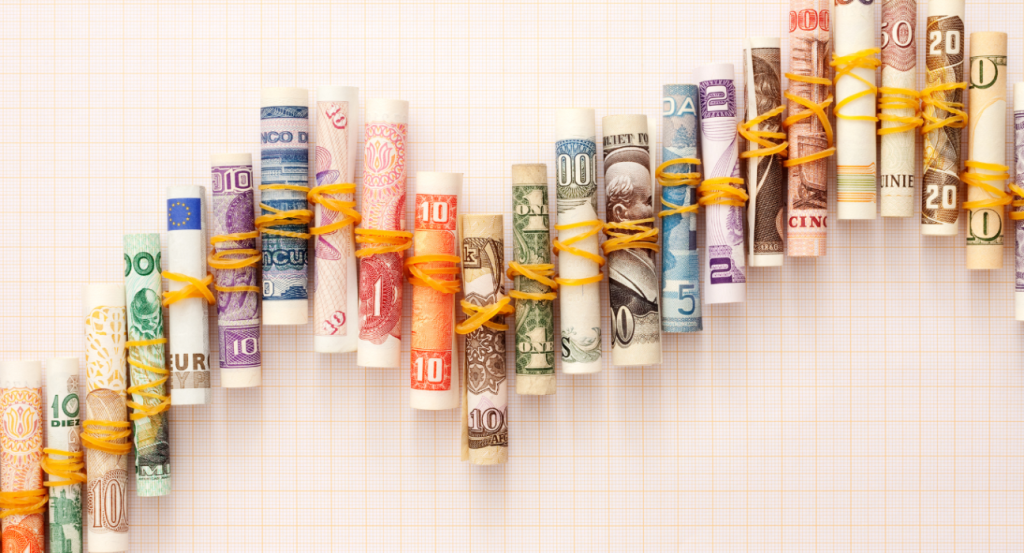The dollar surged to a six-week high against a basket of currencies, while most Asian currencies fell on Friday as hawkish comments from Federal Reserve officials and stronger-than-expected inflation readings raised expectations of more interest rate hikes this year. Fed officials James Bullard and Loretta Mester struck a hawkish tone in separate speeches, warning that the central bank could raise interest rates at a sharper pace if sticky inflation persists.
The reading came in line with a hotter-than-expected consumer price index report earlier this week, and gives the Federal Reserve more ammunition to keep raising interest rates. Bullard said the bank’s March meeting could even result in a 50 basis point hike (bps), after the central bank hiked rates by a relatively smaller 25 bps earlier this month.
The Japanese yen was among the worst-hit Asian currencies, falling 0.6% to 134.72 against the dollar – its weakest level since late-December. The Japanese currency was also pressured by uncertainty over the path of monetary policy under new Bank of Japan Governor Kazuo Ueda. Ueda faces the daunting task of steering the Japanese economy through rising inflation and weakening economic growth. Data this week showed the world’s third-largest economy grew at a slower-than-expected pace in the fourth quarter.
China’s yuan fell 0.2%, even as the government declared a “decisive victory” over COVID-19 after relaxing most restrictions earlier this year. The focus is largely on a Chinese economic recovery this year, which could benefit broader Asian currencies.
Rising U.S. interest rates bode poorly for Asian currencies, as the gulf between risky and low-risk debt narrows. Tighter U.S. monetary policy also opens the door to a potential U.S. recession this year, which could decimate sentiment towards risk-driven assets. The Malaysian ringgit sank 0.7%, while the South Korean won fell 0.8%. The Singapore dollar fell relatively less than its Southeast Asian peers, losing 0.3% as data showed the country’s key non-oil exports grew slightly in January from the prior month. But on an annualized basis, exports plummeted far more than expected. The Thai baht fell 0.4% as data showed the country’s economy grew much less than expected in the fourth quarter.
Conclusion
The dollar hit a six-week high against a basket of currencies, while most Asian currencies fell on Friday. Stronger-than-expected inflation readings and hawkish comments from Federal Reserve officials have raised expectations of more interest rate hikes this year. Rising U.S. interest rates bode poorly for Asian currencies, as the gulf between risky and low-risk debt narrows. Tighter U.S. monetary policy also opens the door to a potential U.S. recession this year, which could decimate sentiment towards risk-driven assets. The impact of these developments on the global economy will become clearer in the coming months.



